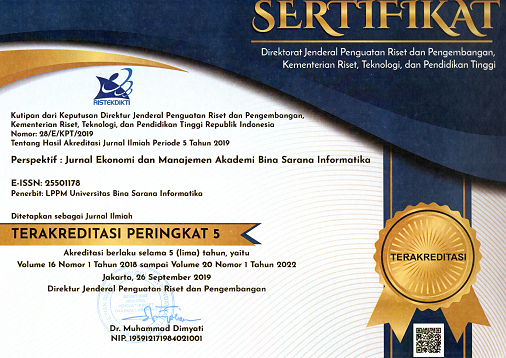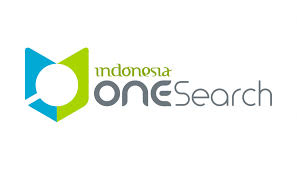War Shocks on Export Lanes: Is World Trade Performance Slowing Down?
Abstract
Full Text:
PDFReferences
Abadie, A., & Gardeazabal, J. (1999). The Economic Costs of Con ¯ ict : A Case Study of the Basque Country. American Economic Review, 93(1), 113–132. https://doi.org/10.1257/000282803321455188
Agiomirgianakis, G. M., & Sfakianakis, G. (2016). Explaining Tourism Inflows in Greece : A Macroeconometric Approach. International Journal of Economics and Finance, 8(4), 192–197. https://doi.org/10.5539/ijef.v8n4p192
Anderson, B. Y. J., & Rainie, L. (2022). To Lose a War. Pew Research Center.
Anderson, E., De Renzio, P., & Levy, S. (2006). The Role of Public Investment in Poverty Reduction : Theories, Evidence and Methods. Methods, March, 40.
Anderson, T. W., & Hsiao, C. (1982). Formulation and estimation of dynamic models using panel data. Journal of Econometrics, 18(1), 47–82. https://doi.org/https://doi.org/10.1016/0304-4076(82)90095-1
Banani-oskooee, M., & Kara, O. (2006). INCOME AND PRICE ELASTICITIES OF TRADE : Some New Estimates INCOME AND PRICE ELASTICITIES OF TRADE : Some New Estimates Mohsen Bahmani-Oskooee Orhan Kara. International Trade Journal, 19(2), 37–41. https://doi.org/10.1080/08853900590933125
Blackburne, E. F., & Frank, M. W. (2007). Estimation of nonstationary heterogeneous panels. Stata Journal, 7(2), 197–208. https://doi.org/10.1177/1536867x0700700204
Célestine, P. M. (2025). THE INFLUENCE OF TRADE WAR POLICIES ON SUPPLY CHAIN NETWORK THE INFLUENCE OF TRADE WAR POLICIES ON SUPPLY CHAIN NETWORK RECONFIGURATION. Brainae Journal of Business, Sciences and Technology, 7(6), 1–12. https://doi.org/10.5281/zenodo.15062766
Contagnier, T., & Kavakli, K. C. (2015). From Economic Competition to Military Combat : Export Similarity and International Conflict *. Journal of Conflict Resolution, 61(7), 1–31. https://doi.org/10.1177/0022002715613565
Chen, H. Y., & Kimura, T. (2018). Quantum integrability from non-simply laced quiver gauge theory. Journal of High Energy Physics, 2018(6), 1–34. https://doi.org/10.1007/JHEP06(2018)165
Collier, B. P. (1999). On the economic consequences of civil war. Https://Doi.Org/10.1093/Oep/51.1.168, 51(1), 168–183. https://doi.org/https://doi.org/10.1093/oep/51.1.168
Ezeoha, A. E., Okoyeuzu, C., Udu, A. A., & Ã, J. E. (2018). Armed Conflicts and Intra-regional Trade Flows : The Cases of ECOWAS and COMESA. African Development Review, 30(4), 346–361. https://doi.org/10.1111/1467-8268.12343
Fischer, S. (1993). The role of macroeconomics in growth. Journal of Monetary Economics, 32, 485–512. https://doi.org/http://dx.doi.org/10.1016/0304-3932(93)90027-d
Frankel, J. ., & Romer, D. (1997). Does Trade Cause Growth ? American Economic Review, 89(3), 379–399. https://doi.org/10.1257/aer.89.3.379
Gea, I. V., & Hotsawadi. (2025). Paratourism Sector in Foreign Countries: An Analysis of the Comparative Competitiveness of Indonesia and ASEAN Countries. Journal of Economics STIEP (JES, 10(1), 63–82). https://doi.org/https://doi.org/10.54526/jes.v10i1.400
Glick, R., & Taylor, A. M. (2005). Collateral Damage : Trade Disruption and the Economic Impact of War. http://www.frbsf.org/publications/economics/papers/2005/wp05-11.pdf
Gopinath, G., Gourinchas, P., & Andrea, F. (2024). Global Linkages : A New Cold War ?
Guo, Y., Liu, F., Song, J., & Wang, S. (2025). Supply chain resilience : A review from the inventory management perspective. Fundamental Research, 5(2), 450–463. https://doi.org/10.1016/j.fmre.2024.08.002
Hameed, M. A., & Rahman, M. M. (2023). Analyzing the Consequences of Long-Run Civil War on Unemployment Rate : Empirical Evidence from Afghanistan. Sustainability, 15(8), 1–21. https://doi.org/https://doi.org/10.3390/su15087012
Harahap, H., & Widyastutik. (2020). Diversification of Indonesia's Non-Oil and Gas Exports to Non-Traditional Markets. Scientific Bulletin of Trade Research and Development, 14(2), 215–238. https://doi.org/10.30908/bilp.v14i2.442
Im, K. S., Pesaran, M. H., & Shin, Y. (2003). Testing for unit roots in heterogeneous panels. Journal of Econometrics, 115(1), 53–74. https://doi.org/10.1016/S0304-4076(03)00092-7
Institute for Economics & Peace. (2023). Global Peace Index 2023. http://visionofhumanity.org/resources
Kao, C. (1999). Spurious regression and residual-based tests for cointegration in panel data. Journal of Econometrics, 90, 1–44. https://doi.org/10.1016/S0304-4076(98)00023-2
Karam, F., & Zaki, C. (2016). How did wars dampen trade in the MENA region ? Economics, 48(60), 5909–5930. https://doi.org/10.1080/00036846.2016.1186799
Krugman, P. R., Obstfeld, M., & Melitz, M. J. (2018). Economics: Theory and Policy, Global Edition by Paul R. Krugman, Maurice Obstfeld, Marc J. Melitz, (z-lib.org). Pearson Education : Harlow, 2018 (Vol. 11, Issue International Economics).
Lee, J., & Pyun, J. H. (2016). Does Trade Integration Contribute to Peace? Review of Development Economics, 20(1), 327–344. http://aric.adb.org/pdf/workingpaper/WP24_Does_Trade_Integration.pdf
Malone, D. M. (2024). UN Security Council: From the Cold War to the 21st Century. SSRN Electronic Journal, 5(12), 1–41. https://doi.org/10.2139/ssrn.4804104
Mancini, M., Conteduca, F. P., & Borin, A. (2022). Real-time impact of the war on Russian imports : a synthetic control method approach. Science and Technology Research Network, 7(2022), 1–17. https://doi.org/http://dx.doi.org/10.2139/ssrn.4295989
Nkoro, E., & Uko, K. A. (2016). Autoregressive Distributed Lag (ARDL) cointegration technique: application and interpretation. Journal of Statistical and Econometric Methods, 5(3), 63–91.
Noureen, S., & Mahmood, Z. (2022). Heliyon: The Effects of Trade Cost Components and Uncertainty of Time Delay on Bilateral Export Growth. Heliyon, 8(December 2021), 1–13. https://doi.org/10.1016/j.heliyon.2022.e08779
Pedroni, P. (2004). PANEL COINTEGRATION : ASYMPTOTIC AND FINITE SAMPLE PROPERTIES OF POOLED TIME SERIES TESTS WITH AN APPLICATION TO THE. Econometric Theory, 20(3), 597–625. https://doi.org/https://doi.org/10.1017/S0266466604203073
Pesaran, M. H., Shin, Y., & Smith, R. P. (1999). Pooled Mean Group Estimation of Dynamic Heterogeneous Panels. Journal of the American Statistical Association, 94(446), 621–634. https://doi.org/10.1080/01621459.1999.10474156
Petracco, C., & Schweiger, H. (2012). The Impact of Armed Conflict on Firms' Performance and Perceptions. https://doi.org/http://dx.doi.org/10.2139/ssrn.2189409
Pettersson, T., Davies, S., Deniz, A., Engstro¨m, G., Hawach, N., Ho¨gbladh, S., Sollenberg, M., & Berg, M. O. (2021). Organized violence 1989 – 2020, with a special emphasis on Syria. Journal of PEACE RESEARCH, 58(4), 809–825. https://doi.org/10.1177/00223433211026126
Polachek, S. W., & Sevastianova, D. (2014). Journal of International Trade and Economic Development : An International and Comparative Review Does conflict disrupt growth ? Evidence of the relationship between political instability and national economic performance. Journal of International Trade & Economic Development: An International and Comparative Review, 21(3), 361–388. https://doi.org/10.1080/09638191003749783
Ramadhoni, M. B. E., Siahaan, T., & Jandhana, I. B. P. (2024). The Impact of War on the Global Economy : Challenges and Opportunities for the Indonesian Defense Industry. Madani Multidisciplinary Journal, 4(7), 908–918. https://journal.formosapublisher.org/index.php/mudima
Schedvin, E. Von, & Townsend, R. (2016). Curbing shocks to corporate liquidity : http://www.nber.org/papers/w22286
Töngür, Ü., & Elveren, A. Y. (2018). The nexus of economic growth, military expenditures, and income inequality. Quality & Quantity, 51(4), 1–22. https://doi.org/10.1007/s11135-016-0368-4
Viaene, J.-M., & Vries, C. G. de. (1991). Exchange rate volatility and international trade. Journal of Business Research, 16(7), 1311–1321. https://doi.org/https://doi.org/10.1016/0014-2921(92)90035-U
Williams, J., Yates, S., & Connor, J. (2023). Creating a new pathway for change in the military using gender as a process. Gender, Work & Organization, 31(1), 211–226. https://doi.org/10.1111/gwao.13049
DOI: https://doi.org/10.31294/jp.v23i2.27433
Copyright (c) 2025 Hotsawadi Hotsawadi

This work is licensed under a Creative Commons Attribution-ShareAlike 4.0 International License.
dipublikasikan oleh LPPM Universitas Bina Sarana Informatika Jakarta
Jl. Kramat Raya No.98, Kwitang, Kec. Senen, Kota Jakarta Pusat, DKI Jakarta 10450

This work is licensed under a Creative Commons Attribution-ShareAlike 4.0 International License










